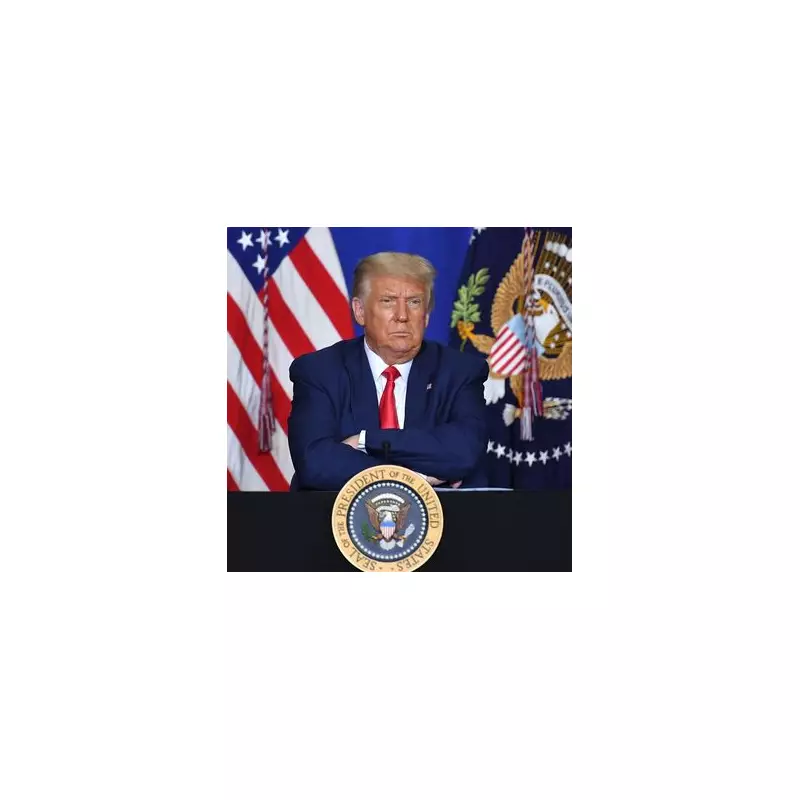
Trump's Dangerous Escalation: From Insults to Execution Threats
Reporting on Donald Trump frequently risks normalising behaviour that would end most political careers, but the former president's latest outburst represents a chilling new low. In a series of Truth Social posts that have sent shockwaves through American politics, Trump explicitly called for opposition politicians to be put to death, marking one of his most authoritarian statements to date.
The president responded with fury to a video created by Democratic congress members who are military veterans, which urged serving armed forces personnel not to follow illegal orders. Trump denounced their actions as "seditious behaviour from traitors" and demanded consequences far beyond usual political retaliation.
The Eight Most Alarming Developments
Execution Calls Cross New Line Trump's reaction escalated rapidly from familiar "lock them up" rhetoric to explicitly endorsing capital punishment. He reposted a supporter's message reading "HANG THEM GEORGE WASHINGTON WOULD !!" before adding his own clarification: "SEDITIOUS BEHAVIOR, punishable by DEATH!" Legal experts immediately noted that even if the Democrats' video constituted sedition - which it likely doesn't under US law - the crime doesn't carry the death penalty.
Epstein Files Surrender After U-Turn In a dramatic reversal, Trump signed legislation compelling the release of Justice Department files concerning Jeffrey Epstein. Having previously lobbied Republicans to block the bill, he performed an abrupt about-face when faced with certain congressional passage. The president claimed credit for the release while simultaneously dismissing it as another "Democrat hoax" that would backfire on his opponents.
Bondi's Baffling Press Conference Attorney General Pam Bondi and FBI Director Kash Patel appeared unprepared when questioned about the Epstein files during a press conference supposedly about a drug trafficker. Bondi repeatedly stated the Department of Justice would "follow the law with maximum transparency" while protecting victims, but failed to provide specific details about the release process.
Comey Trial Faces Implosion The Justice Department acknowledged that the full grand jury in its case against former FBI director James Comey didn't see the final indictment against him. Prosecutors admitted only the foreperson and one other juror reviewed the complete document, giving Comey's lawyers grounds to seek case dismissal. This follows a judge's identification of "investigative missteps" and "government misconduct" that may have compromised proceedings.
Media Attacks Escalate Trump renewed his campaign against Jimmy Kimmel, calling for the comedian to be removed from airwaves without specifying fresh grievances. The president also threatened ABC News's broadcast licence after its reporters asked legitimate questions about Jamal Khashoggi's murder and Epstein files during a Saudi delegation visit. The White House issued an extraordinary press release cataloguing perceived ABC transgressions.
Constitutional Norms Erode Trump has increasingly used Truth Social posts to direct Justice Department actions, with cases against James Comey and investigations into Democratic figures linked to Epstein both originating from presidential social media demands. This bypassing of traditional protocols represents a significant erosion of institutional independence.
Mamdani's High-Stakes Meeting New York Mayor-elect Zohran Mamdani accepted Trump's invitation to the Oval Office, stating he would "speak plainly to the president about what it means to actually stand up for New Yorkers" regarding cost-of-living concerns. The meeting risks repeating the explosive dynamics of previous Trump encounters with political opponents.
Cheney Funeral Snub In a telling reflection of Republican divisions, neither Trump nor Vice President JD Vance received invitations to former Vice President Dick Cheney's funeral, underscoring the enduring rift between traditional conservatives and Trump's movement.
What Happens Next with Epstein Files
The newly signed legislation gives the Justice Department 30 days to release all unclassified Epstein investigation materials in searchable, downloadable format. The law specifically prohibits withholding information due to "embarrassment, reputational harm or political sensitivity" while allowing redactions only for active investigations, national security concerns, victim privacy, or explicit content.
As America processes another week of unprecedented presidential behaviour, Trump's explicit endorsement of executing political opponents represents a watershed moment that many commentators argue should not be dismissed as mere political theatre. The combination of authoritarian rhetoric, weaponised justice, and institutional erosion presents profound challenges for American democracy that extend far beyond usual political disagreements.





